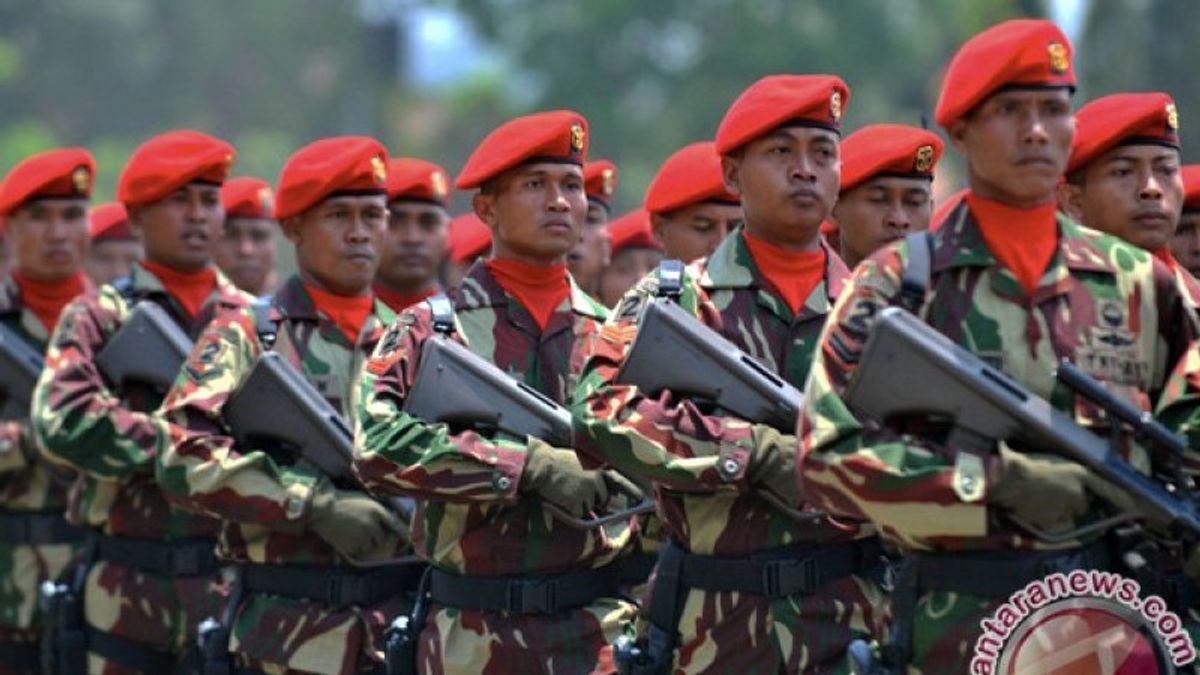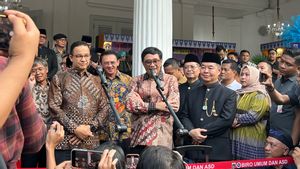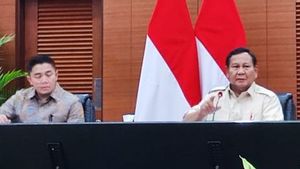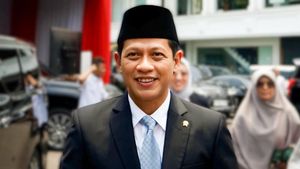JAKARTA Today's history, April 16, 1952, was marked by the birth of the Indonesian Army's Special Forces Command (Kopassus). The elite troops, which were characterized with red berets, were formed with the aim of quelling the rebellion of the South Maluku Republic (RMS) in mid-1950.
The forerunner of Kopassus is the Commander of the Teratorium III/Siliwangi Command, which is fronted by Colonel Alexander Evert Kawilarang. AE Kawilarang through military intelligence then contacted a former member of the Dutch elite troops who moved and lived in Indonesia, Major Rokus Bernardus Visser. In Indonesia, Visser uses the name Mochammad Idjon Djanbi.
The elite TNI AD troops changed their names several times. After being first formed under the name of the Terinatory Army Command Unit (Kesko TT), this unit is named KKAD (Unity of Army Command), RPKAD (Resimen of Army Command Forces), Puspassus, Kopasandha (Commando of Sandi Forces Yudha), and sometimes Kopassus.
When it was first formed, this troop was based in Bandung with only 100 troops. Currently Kopassus is divided into four groups and one training center. The Kopassus training center is in Batujajar, Bandung. Group 1 is based in Serang, Group 2 in Kartasura, Groups 3 and 4 in Cijantung, East Jakarta.
Moto Kopassus, Tribuana Chandraca Satya Darma, means: Soldiers who have mastered special war tactics, are proficient and reliable in moving quickly on land, sea, or air. High patriotic spirit, always ready to carry out their main tasks throughout and ready to face threats to the Unitary State of the Republic of Indonesia. It's better to go home from your name than to fail in the Medan of the Match, to become the motto of the Indonesian Army Kopassus.
Currently Kopassus has a troop number of 6,000 soldiers. The reason for the expansion of Kopassus into five groups is partly based on the possibility of small-scale conflict, tinggi intensity, short-term, and part of the need for a four-part rotation cycle: a quarter of duty, a quarter training, a quarter of rest (consolidation), and a quarter of reserves.
"We are not great, but trained. This spirit must be accounted for for for the success of the task," said Lt. Gen. TNI (Ret.) Tarub, Commander of the 12th Kopassus in the Kopassus book for Indonesia: Professionalism of Kopassus Soldiers.
There have been so many military operations involving Kopassus, since the beginning of the formation of this elite troop unit until now. Since the operation to crack down the RMS rebellion, Operation Trikora (1962), Indonesian-Malaysia Confrontation (1962-1963), PKI G30S Insurgency (1965), Seroja Operation in East Timor (1975), Aceh Merdeka Insurgency (1976-2004), Poso Riot (2001), Ambon Riot (2002), and many more.
Kopassus troops are also included in the Garuda Contingent. This force was deployed in the UN mission to maintain peace in a conflict-torn country, in various parts of the world.
As an army with knowledge against terrorism, Kopassus was also deployed in various hostage release operations. One of the most famous was the release of hostages in the hijacking of Garuda Indonesia's Woyla aircraft at Don Muang Airport, Bangkok, Thailand in 1981.
On March 28, 1981, Garuda Indonesia's DC-9 Woyla aircraft were hijacked by the Jihad Command terrorists on a flight from Jakarta to Medan. The terrorist group demanded a ransom of 1.5 million US dollars, the dismissal of Vice President Adam Malik, and the expulsion of all Israeli nationals from Indonesia. Kopassus troops under the command of Lt. Col. Sintong Panjaitan managed to free the hostages in Don Muang.
Five hijackers were shot dead, but the operation also killed two people outside the hijackers. Kopassus member Lettu. Achmad Kirang and pilot Herman Rante died from gunfire during Operation Woyla's firefight.
Kopassus also played a role in the release of the cargo ship MV Sinar Kudus, which was attacked by Somali pirates in the Indian Ocean on March 16-1 May 2011.
The success that has been achieved so far must be nurtured, maintained, and improved in order to deal with the development of global, regional and national situations that are rolling with high complexity. All of this needs to be anticipated quickly, precisely, and accurately from each member of Kopassus both in individual and unit relations. Command! " said the 15th Kopassus Commander, Lt. Gen. (Ret.) Prabowo Subianto, who is now the Minister of Defense of the Republic of Indonesia in the book Kopassus for Indonesia: Professionalism of Kopassus Soldiers.
The English, Chinese, Japanese, Arabic, and French versions are automatically generated by the AI. So there may still be inaccuracies in translating, please always see Indonesian as our main language. (system supported by DigitalSiber.id)













